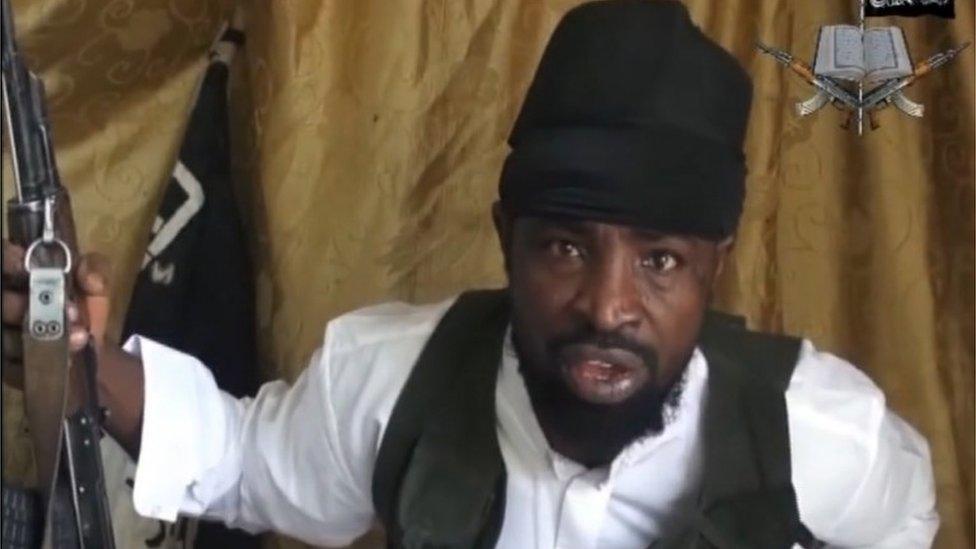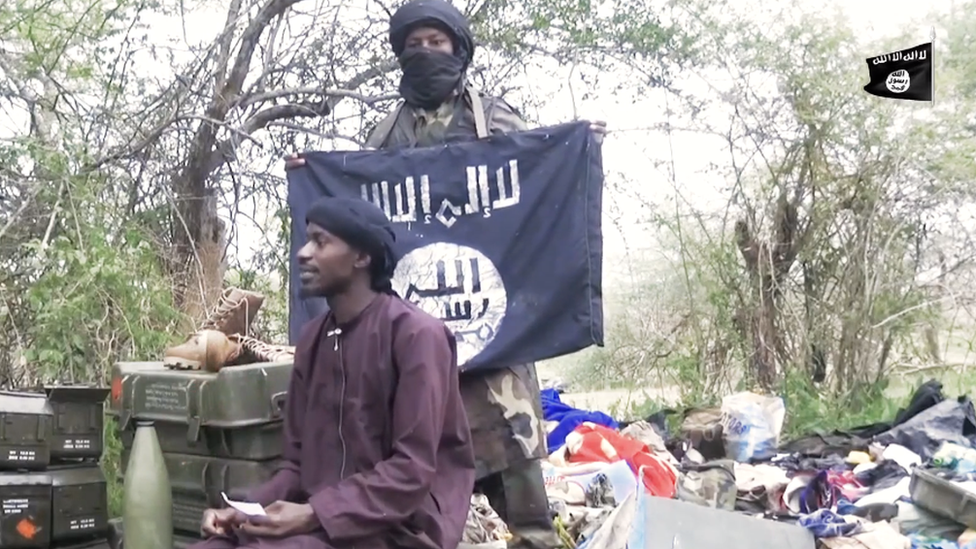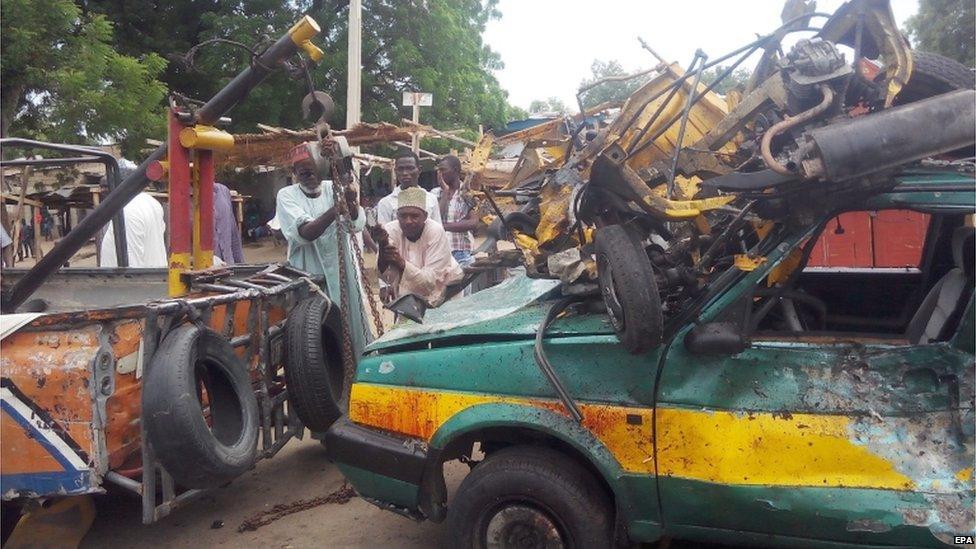Nigeria's Boko Haram leader Shekau absent from video
- Published

Abubakar Shekau used to appear regularly in Boko Haram videos
Militant Islamists have released a new video on the insurgency in Nigeria, with Boko Haram leader Abubakar Shekau again failing to appear in it.
His continued absence has increased speculation about his fate.
He was last heard from in March, when he released an audio message pledging allegiance to the Islamic State (IS) group.
Soon thereafter, Nigeria's military said it had recaptured all towns and cities from Boko Haram.
The military said on Sunday that it had freed 178 people held captive by Boko Haram in north-eastern Borno state.
It had also killed militants and captured a commander following airstrikes on the group's bases, it added.
'Sleek production'
In the eight-minute video, an unidentified young man speaks in the name of the Islamic State in West Africa calling on people to be patient: "We are still present everywhere we had been before."

The man spoke in the regional Hausa language, with subtitles in Arabic and English
The video shows the militants attacking a security checkpoint, seizing weapons, and slitting the throat of a man dressed in a police uniform.
Mr Shekau also failed to appear in a Boko Haram video released in June.
BBC Nigeria analyst Naziru Mikailu says this will renew speculation that he is either deep in hiding, or has been wounded and even killed.
Regardless of Mr Shekau's fate, it is clear from the video that some militants in Nigeria are still determined to fight, he says.
The video is gruesome, but its production sleek and this suggests that it was produced with the help of IS-allied propaganda units, he adds.

Boko Haram has carried out a wave of bombings in Nigeria
The young militant spoke in the regional Hausa language, with an accent from the Kanuri ethnic group, to which Mr Shekau belongs.
Mr Shekau became Boko Haram leader following the killing of the group's founder, Muhammad Yusuf, in police custody in 2009.
Previous reports about his death proved to be untrue.
He sparked global outrage when Boko Haram abducted more than 200 girls from a boarding school in Chibok town in Borno state in April 2014.
He laughed in a video clip, and said: "I abducted your girls. I will sell them in the market, by Allah. I will sell them off and marry them off."
The US government has offered a reward of up to $7m (£4.6m) for information about his location.
IS is based in Iraq and Syria, has a foothold in Libya, and has vowed to create a global caliphate.

Boko Haram at a glance

Founded in 2002, initially focused on opposing Western-style education - Boko Haram means "Western education is forbidden" in the Hausa language
Launched military operations in 2009
Thousands killed, mostly in north-eastern Nigeria, abducted hundreds, including at least 200 schoolgirls
Joined Islamic State, now calls itself "West African province"
Seized large area in north-east, where it declared caliphate
Regional force has retaken most territory this year